The European Union and the American Chamber of Commerce on Monday joined a growing chorus of criticism against the government’s decision to expel Financial Times’ Asia News Editor Victor Mallet.
The spokesperson for the EU’s High Representative said the decision set a “worrying precedent,” and asked that journalists be allowed to work independently and without interference.
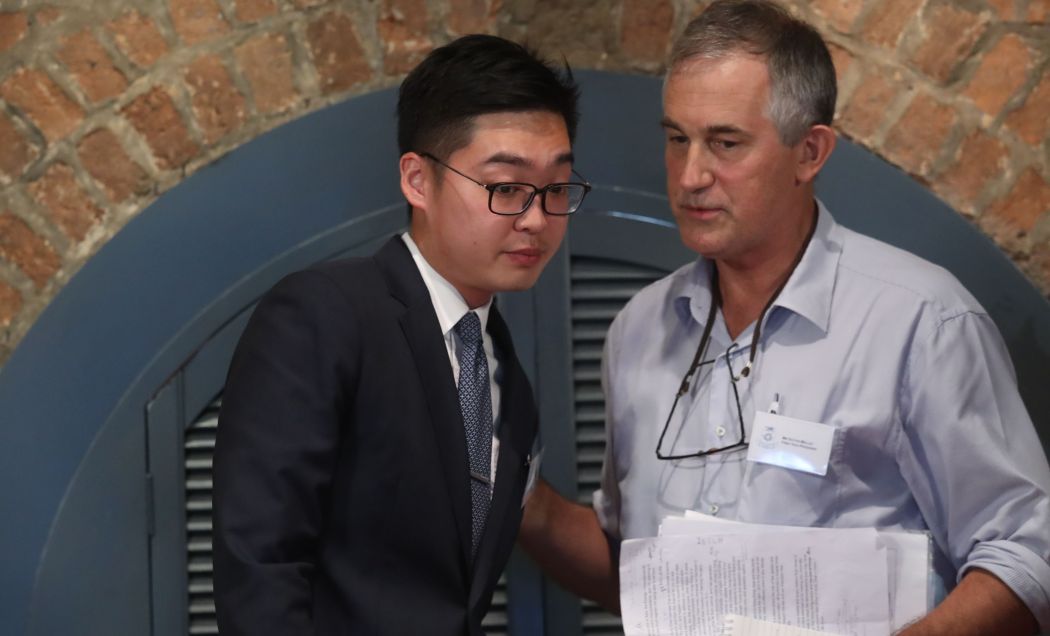
It also expressed concern over the lack of an official explanation: “In the absence of a credible alternative explanation from the authorities, the decision appears politically motivated and therefore raises serious concerns about freedom of the press and freedom of expression in Hong Kong,” the statement read.
HKFP revealed on Friday that Mallet’s visa renewal application was refused. Mallet, who is also the first vice president of the Foreign Correspondents’ Club (FCC), had hosted a talk by independence advocate Andy Chan in August. Chan’s Hong Kong National Party was banned by the authorities shortly after.
The decision drew widespread criticism from pro-democracy lawmakers, journalists and human rights groups. The Immigration Department said it would not comment on individual cases.
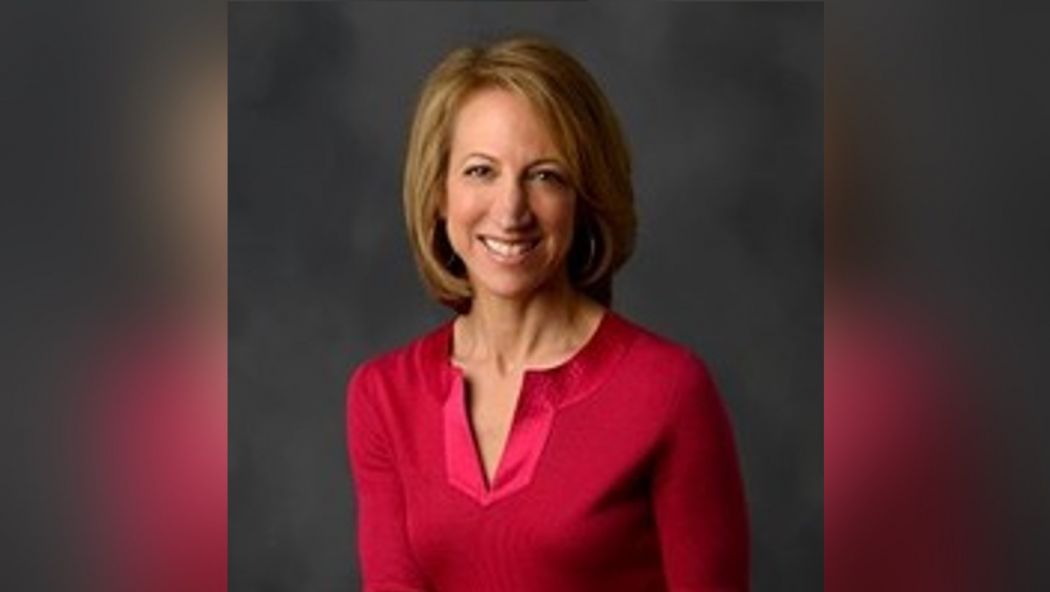
The American Chamber of Commerce also issued a rare statement, saying that “any effort to curtail press freedom in Hong Kong could damage Hong Kong’s competitiveness as a leading financial and trading centre.”
The trade group’s president Tara Joseph said that, without a free press, capital markets cannot properly function, and business and trade cannot be reliably conducted.
”In Full: American Chamber of Commerce statement”
Hong Kong has not renewed the work visa for the Asia editor of the Financial Times, an established newspaper with operations and reporters in Hong Kong.
This news has caught the international business community’s attention as Hong Kong has long been an open environment for journalists and editors, with many international media outlets housing their Asia headquarters in Hong Kong thanks to its rule of law, connectivity, and freedom of speech.
These incidents cannot be brushed off as individual, isolated events every time they happen. Transparency is one of AmCham’s core values, and Hong Kong ought to make it clear to the international business community that free speech and free flow of information in this world city is still sound enough for business to consider Hong Kong as an important hub.
“The rejection of a renewal of work visa for FT correspondent Victor Mallet sends a worrying signal. Without a free press, capital markets cannot properly function, and business and trade cannot be reliably conducted,” said AmCham President Tara Joseph.
Any effort to curtail press freedom in Hong Kong could damage Hong Kong’s competitiveness as a leading financial and trading center.
AmCham is a non-political and non-partisan organization with a large membership from the international business community. Our core mission is to foster trade between the United States and Hong Kong and to enhance Hong Kong’s status as an international business center. We also stand for the core values of free trade, open markets, ethical and responsible business practices and importantly, transparency and the free flow of information.
A free press is a core component of Hong Kong’s success, and that includes the international and local media located here.
The trade group – which describes itself as “non-political and non-partisan” – courted controversy on Sunday, when Joseph told the SCMP that “businesses were more concerned with ensuring a level playing field for firms in the city” and declined to comment directly on Mallet.
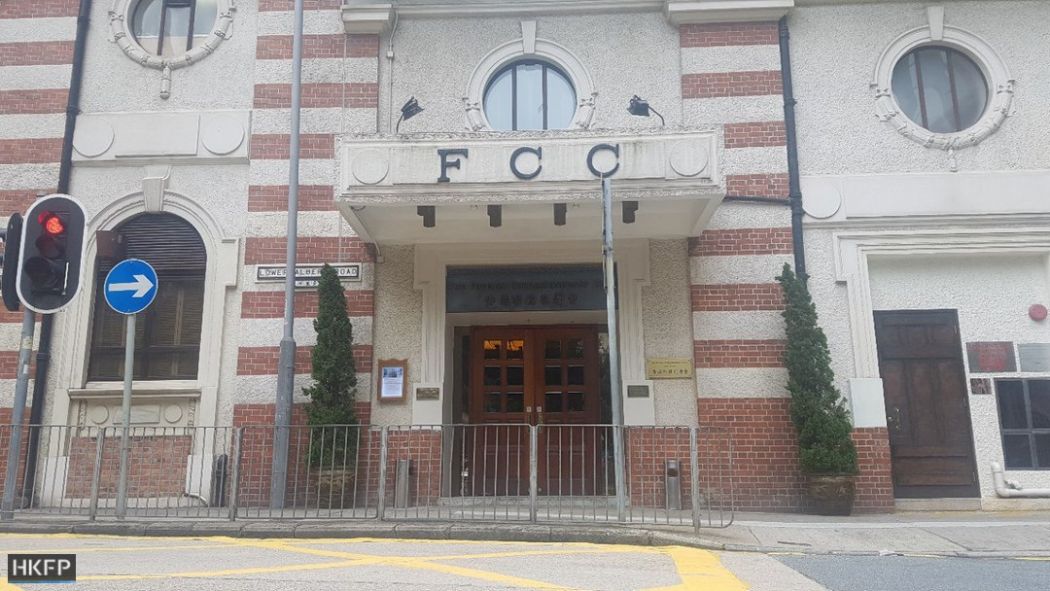
But it made a U-turn on Monday, issuing a strongly-worded statement taking aim at the Hong Kong government’s rhetoric of “individual cases.”
“These incidents cannot be brushed off as individual, isolated events every time they happen,” the statement read. “A free press is a core component of Hong Kong’s success, and that includes the international and local media located here.”
Legal sector heavyweights ‘concerned’
The government’s decision to refuse Mallet’s visa renewal was also roundly criticised by the legal community, including the legal subsector of the Election Committee. The 1,200-member Election Committee are the only people in Hong Kong with the power to elect the Chief Executive, and the legal subsector is allocated 30 seats.
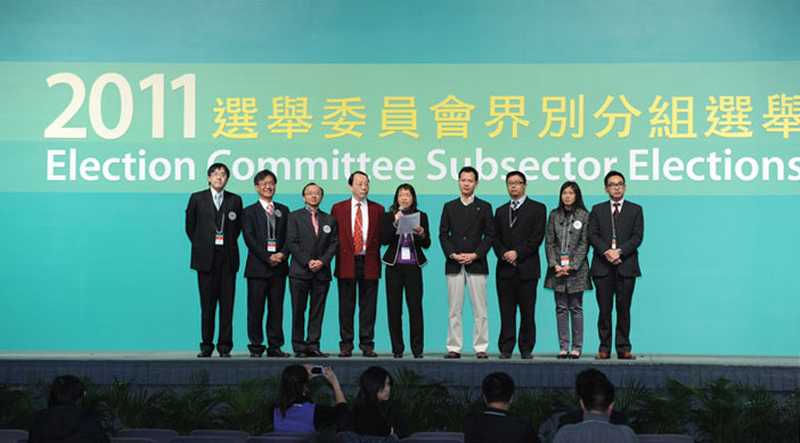
All 30 members of the legal subsector signed the statement which highlighted the “unprecedented nature” of the government’s decision.
“We would not speculate on the reason behind such rejection, but we do wish to point out that such rejection calls for an explanation in light of its unprecedented nature and its profound impact on Hong Kong’s press freedom,” the statement read, adding that freedom of the press was protected in Hong Kong under international and local law.
”In full: Legal subsector statement”
We make this Joint Statement to express our concern over the Hong Kong government’s recent rejection of an application for renewal of work visa by the Financial Times’ Asia news editor, Mr Victor Mallet, who had been working in Hong Kong since October 2016. According to Financial Times report, this is “the first time an FT journalist has had such accreditation denied by local authorities”, and no reason had been given for the rejection.
At this stage, the Hong Kong government has not offered any explanation for its rejection of Mr Mallet’s visa renewal application. We would not speculate on the reason behind such rejection, but we do wish to point out that such rejection calls for an explanation in light of its unprecedented nature and its profound impact on Hong Kong’s press freedom.
Freedom of the press is an important facet of the right to freedom of expression, a fundamental right enshrined in Article 16 of the Hong Kong Bill of Rights, which implements Article 19 of the International Covenant on Civil and Political Rights (“ICCPR”). As the United Nations Human Rights Committee explained in General Comment 34 (on Article 19 of ICCPR) at paragraph 13:
“A free, uncensored and unhindered press or other media is essential in any society to ensure freedom of opinion and expression and the enjoyment of other Covenant rights. It constitutes one of the cornerstones of a democratic society. The Covenant embraces a right whereby the media may receive information on the basis of which it can carry out its function. The free communication of information and ideas about public and political issues between citizens, candidates and elected representatives is essential. This implies a free press and other media able to comment on public issues without censorship or restraint and to inform public opinion. The public also has a corresponding right to receive media output.”
We urge the Hong Kong government to seriously reconsider the rejection of Mr Victor Mallet’s visa renewal application and, in the unfortunate event that the government decides to maintain such rejection, adequate reasons should be given.
陳景生 Chan King Sang Edward SC
戴啟思 Dykes Philip John SC
梁家傑 Leong Kah Kit Alan SC
夏偉志 Harris Graham Anthony SC
彭耀鴻 Pang Yiu Hung Robert SC
潘熙 Pun Hei Hectar SC
查錫我 Char Shik Ngor Stephen
鄭瑞泰 Cheng Shui Tai
張達明 Cheung Tat Ming Eric
張惠儀 Cheung Wai Yee Betty
張耀良 Cheung Yiu Leung
關尚義 Clancey John Joseph
何俊麒 Ho Chun Ki Frederick
何俊仁 Ho Chun Yan Albert
郭憬憲 Kwok King Hin Douglas
林洋鋐 Lam Kenneth
廖成利 Liu Sing Lee Bruce
文浩正 Man Ho Ching Jonathan
吳思諾 Ng Sze Nok Senia
潘淑瑛 Poon Suk Ying Debora
石書銘 Shek Randy Shu Ming
譚俊傑 Tam Chun Kit Jeffrey
韋智達 Vidler Michael John
黃鶴鳴 Wong Hok Ming Alan
王學今 Wong Huk Kam
黃國桐 Wong Kwok Tung Daniel
黃瑞紅 Wong Shui Hung Linda
黃宇逸 Wong Yu Yat Anson
葉海琅 Yip Hoi Long Richard
阮陳淑怡 Yuen Chan Suk Yee Helena
“We urge the Hong Kong government to seriously reconsider the rejection of Mr Victor Mallet’s visa renewal application and, in the unfortunate event that the government decides to maintain such rejection, adequate reasons should be given.” It was the third-ever collective statement issued by the group.
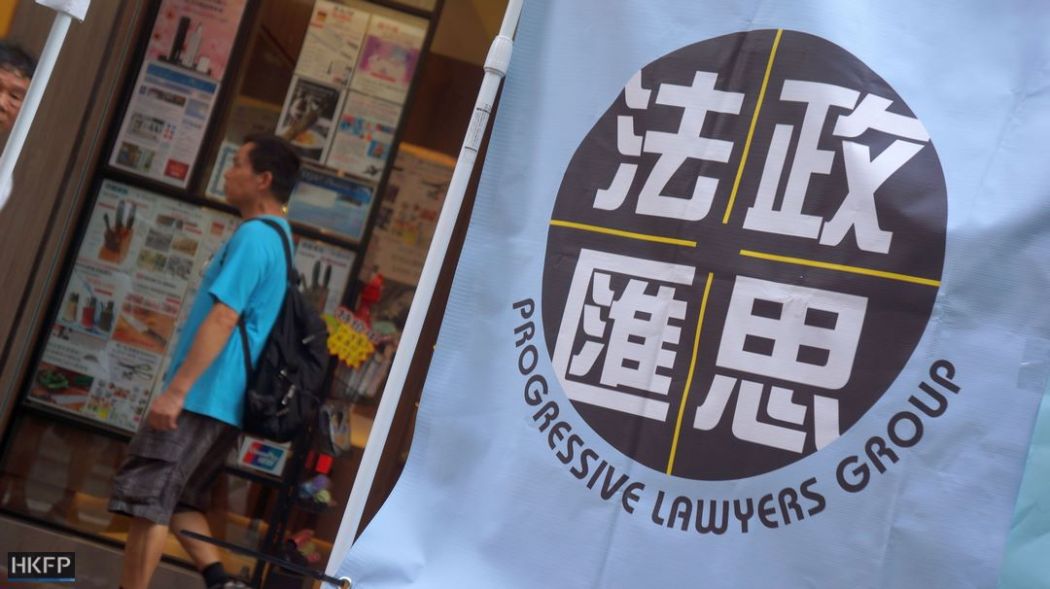
The pro-democracy Progressive Lawyers Group also urged the government to explain its decision, saying that “any further silence would deepen the chilling effect and impress upon the world the capriciousness of the Hong Kong Government.”
‘No explanation given overseas’
Tam Yiu-chung, a former DAB legislator who now sits on China’s top lawmaking body, said on Monday he found it strange that groups were demanding an explanation for turning down the visa application.
Speaking on a radio programme, Tam said he knew of friends who travelled to the UK and had their visa denied, and they did not receive an explanation either.
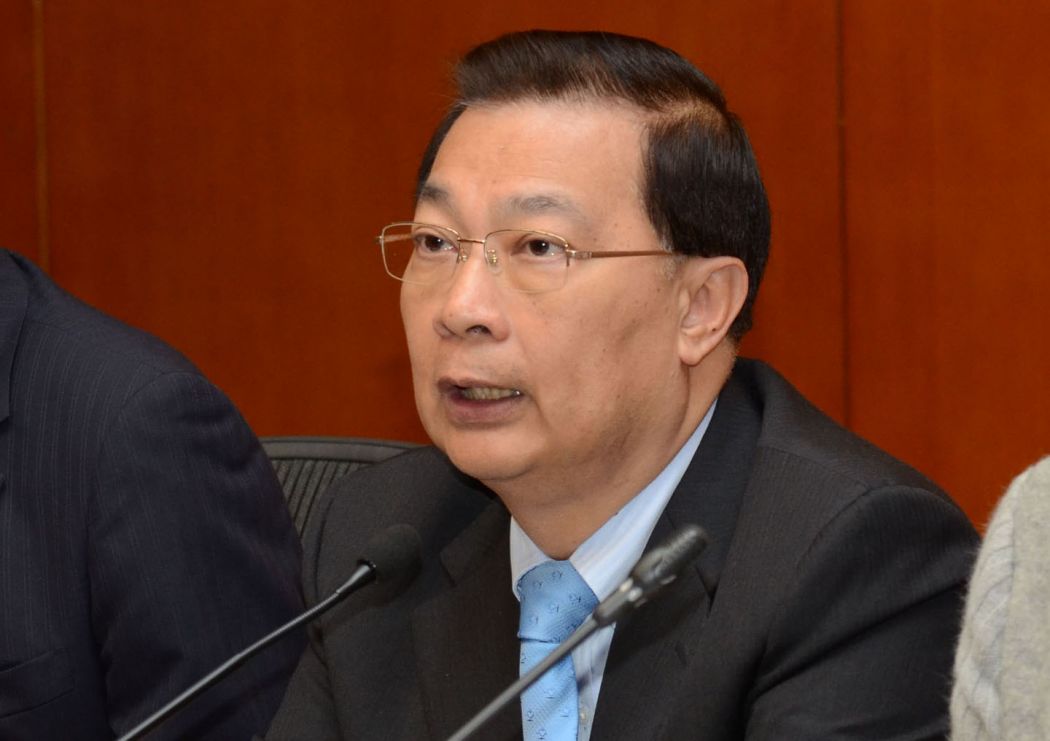
“There is a lot of speculation in society that [the denial] was related to Mallet’s recent public activities. If that were true, I feel the government’s actions are very reasonable,” Tam added.
His comments were echoed by Chief Secretary Matthew Cheung, who spoke to reporters late on Monday reiterating the government’s stance.
“The Immigration Department handles a large number of work visa applications every day… as a general rule, the decision will not be explained to anyone, including to the applicant himself. Every country does it this way,” Cheung said.
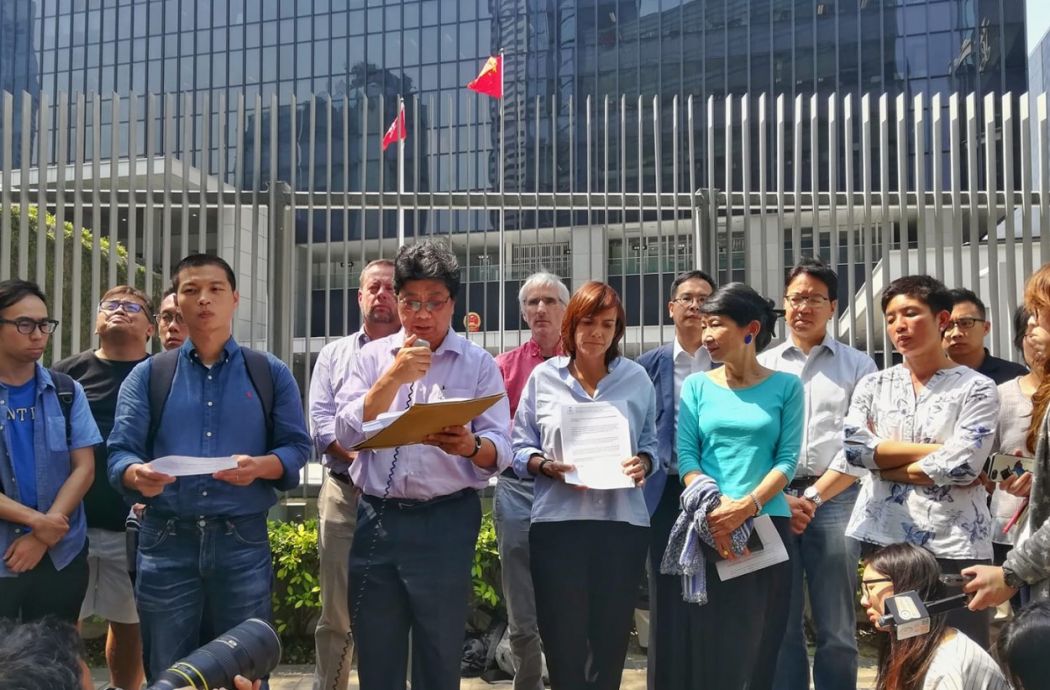
China’s foreign ministry has said it supports the city, and warned other countries not to interfere: “It is indisputable that the Hong Kong government exercises its legitimate rights in accordance with China’s own laws, whether it be national laws, or basic laws of the HKSAR,” ministry spokesman Lu Kang told reporters on Monday.
